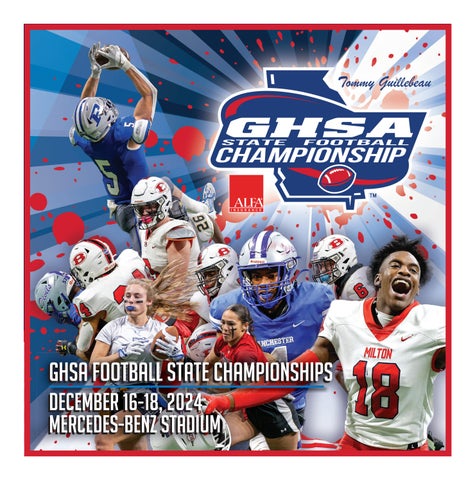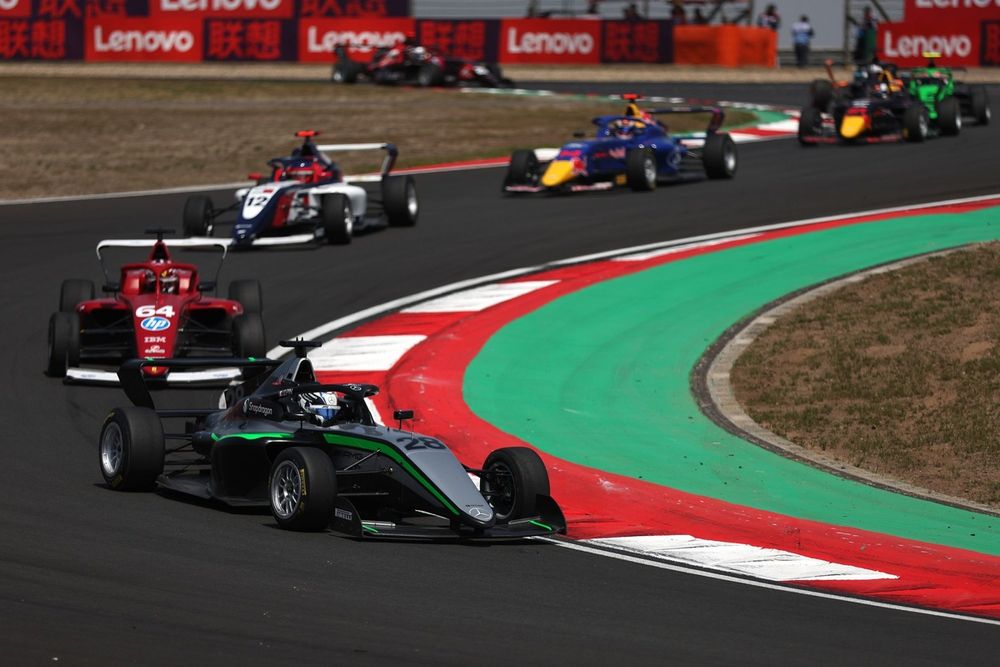NIL
Pay to play
PROVO — As college football continues to evolve in the wake of the NIL era, the traditional model of recruiting, development, and player loyalty is being fundamentally reshaped. At the intersection of this transformation is Will Snowden, the founder of Alpha Recruits, which is a Utah-based organization that helps young athletes navigate the college football […]



PROVO — As college football continues to evolve in the wake of the NIL era, the traditional model of recruiting, development, and player loyalty is being fundamentally reshaped.
At the intersection of this transformation is Will Snowden, the founder of Alpha Recruits, which is a Utah-based organization that helps young athletes navigate the college football recruiting process.
Snowden has been a firsthand witness to the sweeping changes that NIL, the transfer portal, and increased agent involvement are bringing to the sport, and he doesn’t see things stabilizing anytime soon.
Where once recruiting was a long-term investment — identifying and developing young talent from the high school level — many programs now operate more like free-agent hunters.
The influx of NIL money and the wide-open nature of the transfer portal have turned college football into a high-stakes marketplace, and agents are no longer limited to post-college careers; they are now very much part of the college game, actively recruiting players still in school.
“With college players being paid, a lot of the top agencies are attacking and going to get these players now,” Snowden said in a recent interview with ESPN 103.9 and 98.3 The Fan. “These agents are getting a ton of information about opportunities … all of a sudden, there’s information about what that kid might be worth if he were to get into the portal.”
Free market free agency
The power that agents now wield is remarkable. They serve not just as advisors but as market makers — negotiating NIL deals, influencing transfer decisions, and even initiating contact between schools and players, directly or indirectly.
While some argue this offers athletes much-needed empowerment, others like Snowden are deeply concerned about the lack of regulation, oversight, and long-term planning within this fast-evolving system.
The real winners in this new structure, according to Snowden, are often players who have already proven themselves at the college level and are willing to jump ship. These players, especially those with multiple years of eligibility left, can command significant NIL offers simply by entering the portal and creating a bidding war among programs.
“Most top players are worth more in the portal than they are at their (current) school,” he said. “I don’t see it changing anytime soon because there is no collective bargaining; there is no union. I’m interested to see how it all plays out.”
High schoolers are not high priority
For college coaches, roster management has become chaotic and unpredictable. For high school athletes, it’s even worse. With programs focused on experienced portal players, many high school seniors are being left behind, even when their talent and potential clearly warrant scholarship consideration. Snowden said the impact has been staggering.
“I’ve seen a 75% drop,” Snowden said, referencing the decline in scholarship offers to high school players. “I’m going to tell you something that really upset me. I have a few guys I’m trying to place who are high school seniors — very good, talented. I’m speaking to an (FCS) program and they say, ‘We need a preferred walk-on backer. He’s going to have to pay for his school first.’
“They said, ‘It has to be a portal guy.’ I said to myself, OK, this is what’s really broken. Schools want to complain about the portal but then all they’ll take is the portal.”
The contradiction is glaring.
College programs bemoan the destabilizing effects of the transfer portal but simultaneously rely on it as their primary method of roster building.
For young players dreaming of college football, this has made the process murkier and more discouraging than ever. The notion of being “recruited and developed” is increasingly being replaced by “wait your turn and hope someone leaves.”
Familial ties and third party connections
Snowden’s recruiting work in Utah offers a clear lens into these shifting dynamics. The state has a close-knit football community, where families often have ties to multiple local universities. Loyalty, tradition, and development used to matter.
But even in a place so steeped in football culture, the new economics of the sport are reshaping how decisions are made and where players end up.
“In Utah, it’s a very small community,” he said. “There aren’t many families that don’t have connections to every school in the state. You have so many families that are split.”
These internal divides reflect broader national trends. NIL and the transfer portal have blurred the lines between amateurism and professionalism; and for many players, the decision to transfer isn’t about loyalty, for some it’s about opportunity, and market value.
Families, third-party representation, and agents see a better deal elsewhere and nudge players into the provocative portal. For others, it’s due to the new transactional relationships between programs and players.
Many players recently have been gently encouraged to enter the portal by coaches seeking to free up scholarships or refresh rosters.
“This is the reality. The portal’s a very interesting place,” Snowden said. “Many of the kids that are in the portal were told to enter the portal. The kids are getting hip to the game. … ‘I gotta do what’s best for me.'”
Transactional vs. transformational
Once rare, transferring is now increasingly common. When relations turn transactional, there is a survival instinct that kicks in that reminds players and their families to make the most of their short college window.
Programs, efforting to retain talent, need a strong message and competitive NIL to retain them. Retaining talent no longer depends on just building a strong team culture, winning as a team or offering playing time. It now requires programs to understand each athlete’s financial and long-term personal calculus.
“It just comes down to the kids, their situation, the commitment to the program, their role inside the program as well,” Snowden said.
At its core, Snowden’s work is still about helping young athletes achieve their dreams. But that dream — of signing on national signing day, wearing a college jersey, and slowly working into a starting role — is fading fast. The system is becoming more transactional, and unless structural reforms come into play, the future of high school recruiting could be in jeopardy.
“I’m focused on helping high school kids live out their dream of playing college football,” he said. “And it’s getting harder and harder — not by the day, but by the second.”
The Key Takeaways for this article were generated with the assistance of large language models and reviewed by our editorial team. The article, itself, is solely human-written.
NIL
Former SEC player returns to Mississippi Valley in bold HBCU homecoming
In a college football era defined by transfer portals and NIL deals, one player just made a decision rooted in loyalty, legacy, and love for home. Dante Kelly, a 6-foot-3, 210-pound safety and former 3-star standout, is coming back—not just to Mississippi, but to the same dirt roads and Friday night lights that shaped him. […]
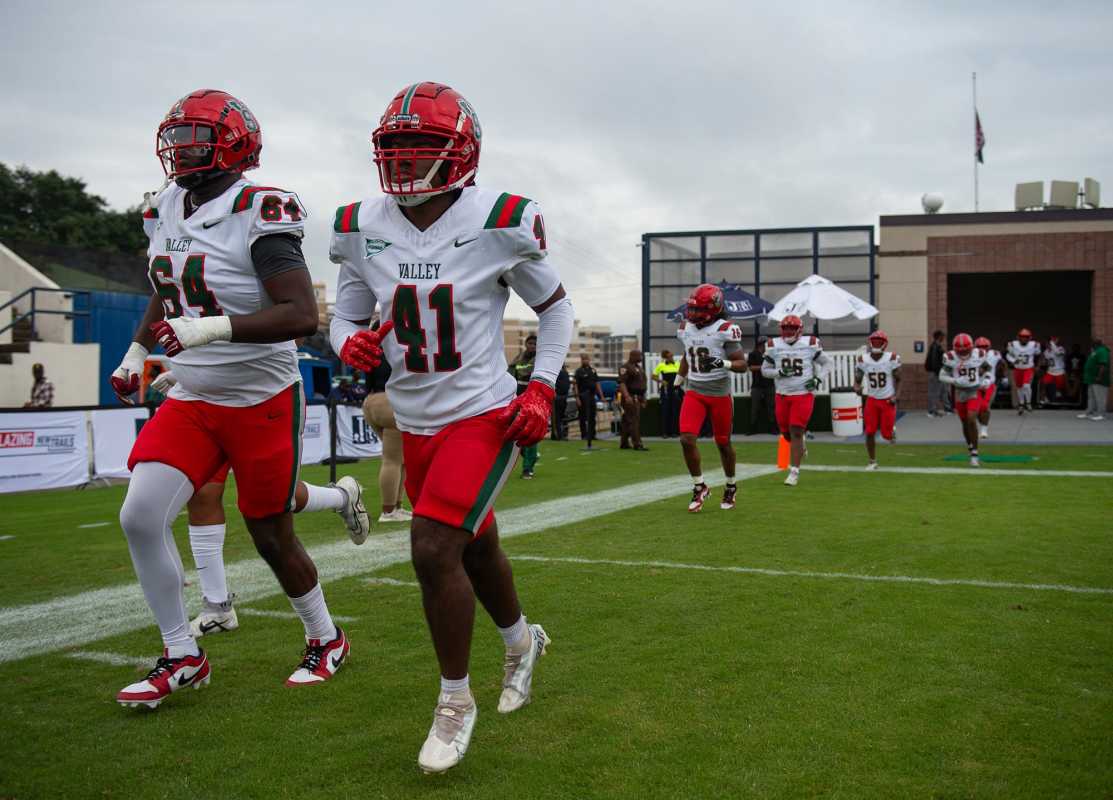
In a college football era defined by transfer portals and NIL deals, one player just made a decision rooted in loyalty, legacy, and love for home.
Dante Kelly, a 6-foot-3, 210-pound safety and former 3-star standout, is coming back—not just to Mississippi, but to the same dirt roads and Friday night lights that shaped him. The Leflore County native is transferring to Mississippi Valley State University, bringing SEC experience and big-time potential back to Itta Bena.
Advertisement
Kelly’s journey has taken him across conferences, but his story started on the fields just minutes from Rice-Totten Stadium. He led Leflore County High School to back-to-back district titles, earning Mississippi Small School All-State honors in 2022 with 105 tackles and 4 picks. He was ranked among Mississippi’s Top 50 prospects, eventually committing to Vanderbilt over offers from Power 4 programs.
“A very special player who I think one day will be a NFL talent. The sky is the limit for Dante,” said former coach Eric House. “The things that stick out with Dante is his physical attributes. He’s very athletic. What sticks out is definitely his speed especially his speed and agility for that size.”
But after a redshirt year at Vanderbilt and a short stint at Southern Miss, Kelly chose a route few former SEC players take—he came home to an HBCU. And not just any HBCU: Mississippi Valley State, a program with a proud past and a struggling present.
The Delta Devils went 1-11 last season. They haven’t posted a winning record in over a decade. But change is coming. With Terrell Buckley—former NFL star and Pascagoula native—now at the helm, Kelly’s arrival feels like the beginning of a cultural shift.

Former NFL DB and new Mississippi Valley State head coach Terrell Buckley© Raymond Carlin III-Imagn Images
“We’re going to build a culture of accountability, hard work, and belief – because winning starts with the standards we set and the mindset we bring every single day,” Buckley stated.
Advertisement
More than just a transfer, Kelly’s return is symbolic. It’s about believing in your roots when the spotlight fades elsewhere. In a region where football is religion and history runs deep, this move isn’t just about playing time—it’s about pride, purpose, and the power of coming home.
Delta Devils fans, take notice—Dante Kelly is back. And he’s not here to blend in. He’s here to change everything.
Related: NFL icon beams with pride at daughter’s HBCU graduation
Related: NBA legend steps up with major donation for HBCU
NIL
David Pollack calls for rookie salary cap in NIL
Many criticisms about NIL are about how it’s handled throughout a player’s career. David Pollack has a solution that handles it, though, from the very start. Pollack shared that idea last week during an episode of ‘See Ball Get Ball’. He thinks the first thing that needs to be fixed about name, image, and likeness […]


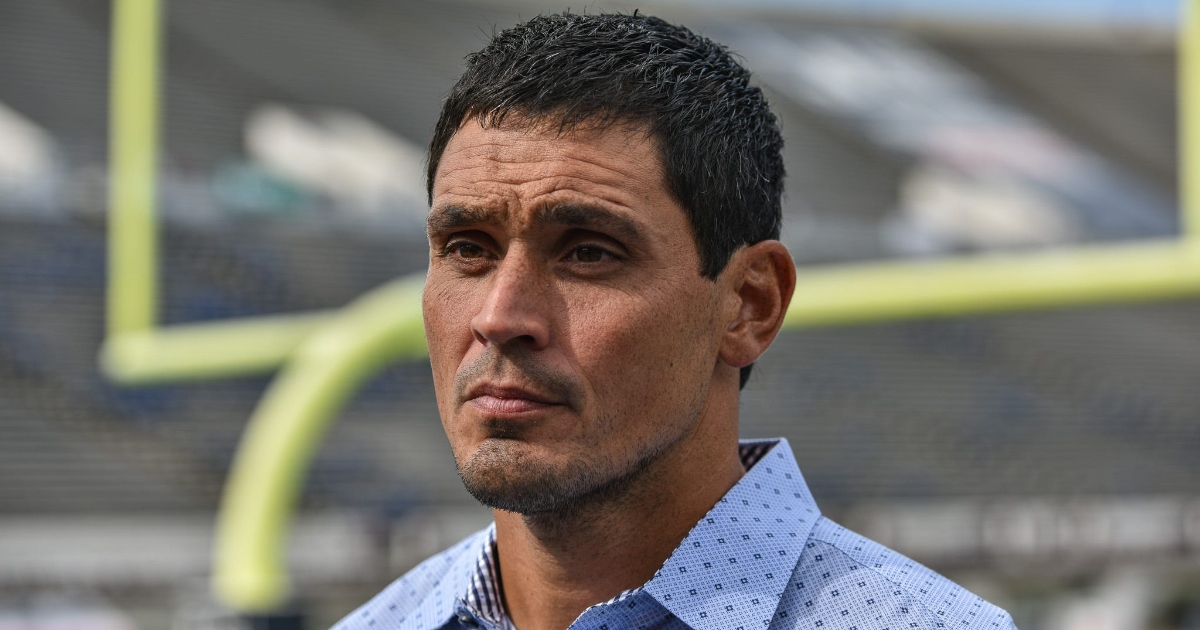
Many criticisms about NIL are about how it’s handled throughout a player’s career. David Pollack has a solution that handles it, though, from the very start.
Pollack shared that idea last week during an episode of ‘See Ball Get Ball’. He thinks the first thing that needs to be fixed about name, image, and likeness is the amounts going to incoming freshmen, leading him to suggest a cap on what they can profit in NIL.
“I have a proposal to start round one. Like, again, I’m seeing all this stuff and you see all these topics, like, how do I really fix NIL? I know the number one thing that needs to be changed,” said Pollack. “Like, if you want to start with something and change college football, and make it better and make it better for the athlete, the athlete’s future and everything about it? We need a rookie salary cap. A coming into a university salary cap. It cannot exceed X.”
This came during a conversation on the show about the commitment of OT Jackson Cantwell to Miami last week. Reporting, per On3’s Pete Nakos, had the Hurricanes offering $2-$2.5 million for Cantwell, the No. 1 overall recruit in 2026, to come to Coral Gables.
Pollack’s point is that recruits incoming as freshmen don’t have any name, image, or likeness to profit from, even if they’re top overall recruits in high school, with their new schools. It also, from the player’s perspective, makes it better for them as they can make an informed decision in their recruitments without it being just about the money.
“NIL – name, image, and likeness? What you did on the field should dictate how much money you get paid. It should not be what you did in high school. Like, it should’t be,” said Pollack. “Not everybody comes from the same background, same stuff. I mean, there’s a lot of factors that go into that.”
“Have a rookie cap. Now, you can choose the spot that’s best for you and it’s not just based on money,” Pollack said. “Here’s the thing. When you make a decision based on money and not looking towards the future, how many of those decisions have you made and you regretted? Like, a lot for me. If I’m making them just on money, I’m blinded, it’s harder. I can’t make a decision based on what’s really best for me.”
Getting something like this enacted would be difficult considering the precedent of the past few years of NIL. That said, the pros are there when it comes to Pollack’s case.
“You want to do something that’s really better for the players? Institute that and it immediately will get better,” said Pollack.
NIL
NFL Rookie Quarterback Strikes Lucrative Deal After Missing Out on NIL Payday
College football has reached a bizarre state of the sport where, for quarterbacks in particular, the NFL offers less of a payout than staying in school if they don’t get selected in the first round. This offseason, star quarterbacks Darian Mensah and Carson Beck reportedly received around $3–4 million to transfer to the Duke Blue […]
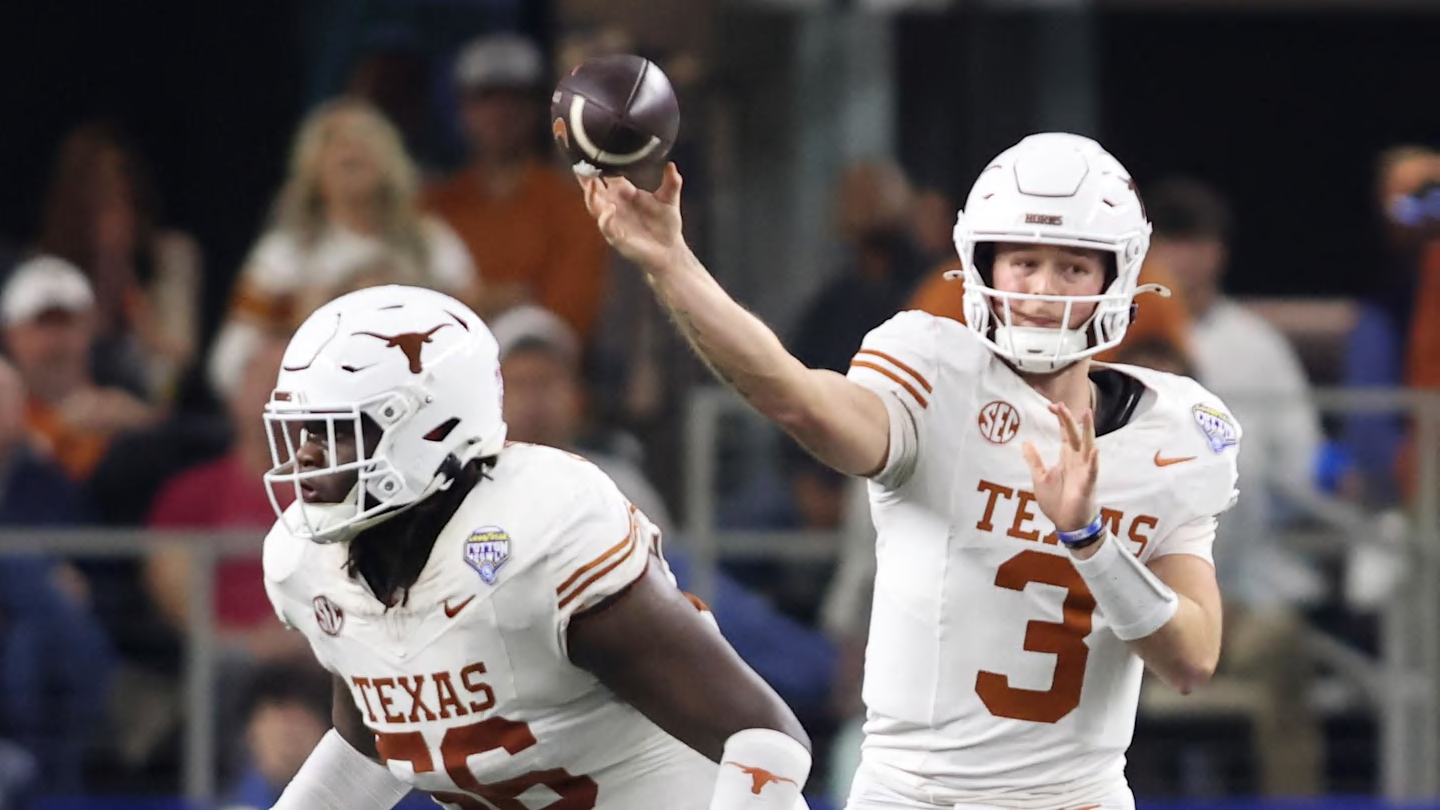
College football has reached a bizarre state of the sport where, for quarterbacks in particular, the NFL offers less of a payout than staying in school if they don’t get selected in the first round.
This offseason, star quarterbacks Darian Mensah and Carson Beck reportedly received around $3–4 million to transfer to the Duke Blue Devils and Miami Hurricanes, respectively.
The Hurricanes were considered a prime landing spot for former Texas Longhorns quarterback Quinn Ewers, and he was said to have turned down a $4 million deal when he elected to enter the NFL draft.
Criticism of that decision skyrocketed when Ewers fell to the seventh round, where he was eventually selected No. 231 overall by the Miami Dolphins.
It seems Ewers has found a way to compensate for those lost earnings in an endorsement deal, though.
On Friday, Ewers announced that he signed an exclusive autograph trading card deal with Panini, which Mike Florio of NBC Sports reports is worth $3 million.
That bottom line all but adds up to Ewers’ four-year contract with Miami, one that will pay out a total of $4.3 million over four years.
Ewers’ Year 1 salary with Miami is $84,000, with an additional prorated amount of $32,894 from his $131,576 signing bonus—ultimately not too bad for a seventh-round pick.
When Ewers continued to slide through Day 3 of the NFL draft, the consensus seemed to believe he greatly erred by not sticking in college.
In the absence of his deal with Panini, his earnings certainly took a massive hit.
However, critics seemed to forget about the viability of endorsement deals, as the power of name, image, and likeness doesn’t dissipate when a player leaves college for the NFL.
Ewers may have garnered additional partnerships on top of his reported $4 million had he gone to the Hurricanes. He also may have taken a poor snap that ended his NFL hopes entirely.
That $4 million would be enough on its own of career earnings that few outside of college athletes will ever come close to at 22 years old.
Ewers is in the NFL, the real dream for most, and he’s almost made back what he lost by deciding to do so.
NIL
David Pollack critical of reported NIL deal for Jackson Cantwell: ‘I’m not spending $2 million on an offensive lineman’
Five-Star Plus+ offensive tackle Jackson Cantell, the No. 1 overall recruit in 2026, committed to Miami over Georgia last week after the Hurricanes reportedly offered quite the deal for him in NIL. David Pollack doesn’t know if that number was worth it, though, even if he is the best in his class. Pollack was critical […]
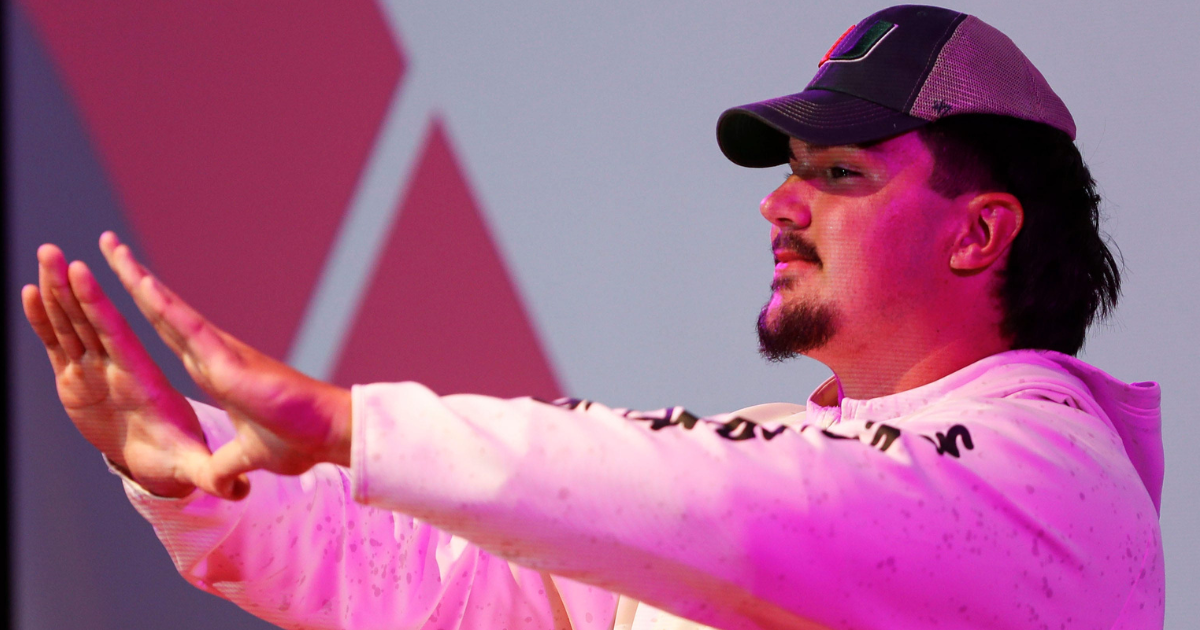
Five-Star Plus+ offensive tackle Jackson Cantell, the No. 1 overall recruit in 2026, committed to Miami over Georgia last week after the Hurricanes reportedly offered quite the deal for him in NIL. David Pollack doesn’t know if that number was worth it, though, even if he is the best in his class.
Pollack was critical of this expense during an episode of ‘See Ball Get Ball’ last week. He knows the value of the offensive line but, at the apparent price point as compared to the rest of the cost of a roster, Pollack isn’t sure if that kind of investment is worth it.
“It ain’t left tackle, homie. Like, it ain’t left tackle. If you want to spend this much money on a quarterback, we can have the conversation. I’m not spending $2 million on an offensive lineman. Like, I’m just not,” Pollack said. “An offensive lineman is obviously going to be in the mix, can be great, can control the game. The likelihood of them getting dinged up and hurt is highly possible. Like, you play a physical position up front like that, you’re going to get – it’s going to happen. Like, it’s just going to happen naturally. Quarterbacks obviously have a chance to stay healthier.
“Obviously, when your line of scrimmage is dominant, it makes life easy for you. I mean, that’s a great thing,” Pollack continued. “So, you know, if Miami has the funds and they can do this? I mean, it’s always at what cost? It’s always, like, where is the next spot that I don’t, that now that I have to fill a void, I have to fill a hole”
Cantwell, a Nixa, Missouri product, is a Five-Star+ prospect at No. 1 in the 2026 cylce per the On3 Industry Ranking, a weighted average that utilizes all four major recruiting media companies. With that, he committed to Miami over Georgia, Oregon, and Ohio State. On3’s Pete Nakos reported Cantwell received an NIL offer in the $2 million range.
Still, Pollack just didn’t know about this fit for Cantwell in Coral Gables. Besides the payment, Pollack also doesn’t know how well Cantwell will develop, considering the program’s recent history with the offensive line under Mario Cristobal.
“Miami, since Cristobal has been there, okay? This is since he’s been there since the 2022 season,” Pollack prefaced. “They have no draft picks in 2022 on the O-line, no draft picks in 2023, a seventh-round pick in 2024, and a fifth-round pick in 2025. So, that’s what you’re telling me that, I’m going to get developed with and I’m going to? It’s not a knock. It’s the numbers. Like, it’s the facts.
“Now, listen. I’m not going to give him all of that because, when you start there, obviously, you’re starting from ground zero, you’re bringing in your own talent. But, because of the transfer portal, you have the opportunity to bring guys in really, really quickly that can play right now that can go and their offensive line has not been,” said Pollack. “Last year, it was pretty solid. Like, it was. They were physical enough to road grade for the run. They protected Cam Ward and Cam Ward made magic. But, you know, those are numbers that are real. Like, those are, Mr. PFF – those are numbers that they have and that they’ve accomplished in his tenure there so far at Miami.”
In the end, all that matters to Miami right now is that Cantwell committed to give the ‘Canes a Top-10 class now for 2026. Still, that price point for that position felt like a lot to Pollack.
“It’s a high investment,” said Pollack. “It’s a high investment in a guy on the offensive line.”
NIL
Mark Pope has one rule change he would like to see made in men’s college basketball
The rules in men’s college basketball are far from perfect. The block/charge call, seemingly endless monitor reviews, and late-game fouling issues are just a few of the areas where tweaks could be made to enhance the overall product. The rules we have in place are what make the sport so entertaining and fun to watch, […]

The rules in men’s college basketball are far from perfect.
The block/charge call, seemingly endless monitor reviews, and late-game fouling issues are just a few of the areas where tweaks could be made to enhance the overall product. The rules we have in place are what make the sport so entertaining and fun to watch, but we’d be lying to ourselves if we said there isn’t a need for improvement.
One potential change that’s recently become a topic of discussion is the movement to switch men’s college basketball from halves to quarters. For one, it would bring sport-wide consistency, as MBB is the only visible version of basketball still utilizing halves. But it would also reset team fouls after each quarter, reduce the number of commercials with fewer media timeouts, and eliminate the one-and-one free throws.
Kentucky head coach Mark Pope has already talked several times about wanting to extend the regular season to 40 games. But that’s more of a landscape-changing idea rather than a clean-and-cut rule modification. However, he’s into the idea of swapping out halves for quarters.
“I don’t know if I have a really intelligent answer on that. I do like consolidating it,” Pope recently said on The Sideline with Andy Katz. “(Men’s college basketball is) the only — not even the women — we’re the only remaining basketball entity that has halves.”
But if you ask Pope what rule change he’d like to see the most, his answer might surprise you. It’s one that makes plenty of sense, though.
“The change that I would really like to make, that I’d be super excited about? I’d like to be able to advance the ball out of timeouts,” Pope said. “I know it slows down the game, but it makes the game so much more interesting when, with 2.5 seconds or 1.5 seconds left, if you don’t have to go fullcourt, but you can advance it, you have a chance to get elite-level shots and decision-making.
“It extends the game to where you have two or three or four possessions, where in college you can only really squeeze in one because you can’t advance the ball.”
This is a rule already in place in the NBA and one that is widely loved. As a personal aside, I love the ability to advance the ball in the NBA after timeouts in late-game situations for the exact reasons Pope outlined. It creates additional drama and gives teams more opportunities to produce highlight plays and buzzer-beating outcomes. It’s much easier to craft a play with one second on the clock when the ball is at halfcourt compared to underneath the opposite basket.
Let’s make it happen, Pope.
NIL
Champion Standard Podcast | Chomp Talk with Mossis Madu – The Football Brainiacs
Continuing with our plan this offseason to share some content that a couple members of our community have been creating for close to a year now! I am happy to be able to announce that TFB supports The Champion Standard Podcast! Our guys @soonerbrad and @Birddawg have been pumping out some high-quality podcasts that talk […]
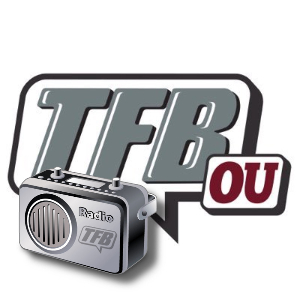
Continuing with our plan this offseason to share some content that a couple members of our community have been creating for close to a year now!
I am happy to be able to announce that TFB supports The Champion Standard Podcast!
Our guys @soonerbrad and @Birddawg have been pumping out some high-quality podcasts that talk about Xs and Os, hot topics, and OU football talk in general. This podcast represents the views and opinions of Rob and Brad and TFB is not part of their operation, but we do endorse it wholeheartedly!
Each time a new podcast drops I will post it here for the community. Give the guys a listen, sub to their YouTube channel, and include their pods on your mobile devices!
Chomp Talk with Mossis Madu
As the Oklahoma Sooners step into the ring for round two in the SEC, few voices can balance nostalgia, realism, and insight like former Sooner running back Moses Madu. In his recent return to the Champion Standard podcast’s “Chomp Talk” segment, Madu joined hosts Rob and Brad to talk about everything from the Sooners’ running back room to the future of college football, NIL chaos, and why expectations in Norman might need tempering.
First Impressions of Jaydn Ott
“He Can Go”
The spotlight early in the conversation landed on Jaydn Ott, the highly-touted transfer from Cal who joins OU’s backfield this season. Madu admitted he didn’t know much about Ott when the news first broke. But after watching film, combing through social media clips, and digging into stats, his view changed dramatically.
“I was like, this kid can go,” Madu said. “He’s the closest thing to a home-run threat we’ve had in a minute—probably since Eric Gray.”
Ott, who led multiple statistical categories, brings speed, shiftiness, and breakaway potential. Madu noted that adding a player of Ott’s caliber deepens a running back room that already includes Xavier Robinson (whom both hosts are high on) and Taylor Tatum, despite the latter’s ball security struggles last season.
But Madu emphasized something else: contrast. Ott provides a different style from the power and burst of guys like Robinson. That contrast, he says, is vital if Oklahoma hopes to compete week in and week out in the brutal SEC.
NIL, the Portal, and the Semi-Pro Future
Madu, now a coach and full-time dad balancing softball games and recruiting trips, didn’t hold back on his views of how the college landscape has changed—and what it means for programs like Oklahoma.
“I really think the college game’s going pro. You’re going to see scouting departments just like the NFL. They’ll have guys watching film 24/7. The portal and NIL changed everything.”
That’s where Jim Nagy’s hiring as a behind-the-scenes football administrator stood out to Madu. The former Senior Bowl director and longtime NFL scout brings the kind of experience OU needs to navigate this new frontier. According to Madu, bringing in someone who’s negotiated with agents and evaluated talent at the pro level is more critical now than ever.
“In today’s game, a guy like Nagy is just as important as your strength coach or OC. Maybe more.”
But while Madu embraces the professionalization of college football, he also lamented what’s been lost—especially for players from his era.
“Back when I played, we had $150 a month after rent. I joke that my booster was my girlfriend’s mom,” he said, laughing. “Now these kids are getting life-changing money—and I’m not mad at it.”
Still, he sees the chaos. Players quitting mid-season, promises not being met, the portal spinning nonstop. He floated ideas like multi-year contracts and transfer windows—mechanisms that could inject structure into the madness.
OU’s 2025 Outlook: Brutal Realism
Perhaps the most sobering moment came when Rob asked Madu for his early prediction for the 2025 season.
“I don’t think we have to be on suicide watch like last year,” Madu joked. “But it’s gonna be tough. I’d be happy with seven wins.”
Seven wins? For a program of OU’s pedigree, that sounds low—but Madu laid it out clearly: it’s about the trenches.
“Skill guys? We’re fine. But we’re not there yet in the trenches. It’s different in the SEC, man. You feel it.”
While Rob and Brad were floating 8-9 wins, Madu’s view was grounded in recent history. Last year’s 6-7 finish exposed glaring holes on both lines, and despite a strong offensive line class and elite interior DL prospects like David Stone, Jaden Jackson, and Da’Jon Terry, Madu believes it’ll take time for the units to raise the bar.
“That’s always the difference—Big 12 vs SEC. It’s the big boys up front.”
Brad countered that OU isn’t that far off—maybe one or two years from being ready—but Madu was firm: three to four years, especially with how everything reset after coaching changes and transfers.
The NIL Tug-of-War: Loyalty vs. Survival
Madu also touched on the deeper ethical tension NIL has introduced—what happens when tradition collides with cold, hard cash.
For kids from disadvantaged backgrounds, NIL is a golden ticket—not just for them, but for their families. But Madu still worries about what’s lost in the process: team loyalty, fan connection, and recruiting for the right reasons.
“We’ve got to find a way to keep the tradition of college football alive. Otherwise it just becomes another league.”
He floated ideas like player contracts, loyalty clauses, and caps—not to hinder players, but to protect the sport’s soul.
The Thunder Surge & J-Dub’s Bounceback
After the deep dive into football, the show shifted gears to basketball, with the Oklahoma City Thunder’s playoff run in full swing. Rob and Brad praised the team’s resilience, especially in their Game 7 win against the Nuggets.
“They went on a 50–25 run to end the half—crazy,” Brad said.
Jalen Williams (J-Dub) finally had a breakout game with 24 points on 10-of-17 shooting, and Shai Gilgeous-Alexander (SGA) did what stars do, pouring in 35 effortlessly.
But the hosts were just as hyped about role players like Alex Caruso (+40) and Cason Wallace (+38)—guys whose defensive energy transformed the series.
“Caruso was like a human gnat on Joker,” Rob said.
They previewed the upcoming matchup against Anthony Edwards and the Timberwolves, predicting a bruising, physical series. Still, both hosts believed the Thunder were built for this—fast, deep, and tenacious.
“I called it months ago,” Rob reminded Brad. “This team will win the whole thing.”
Final Word: A Real One Returns
Moses Madu doesn’t sugarcoat it. His blend of affection for the program and realistic assessment is exactly what OU fans need right now. With the transition to the SEC, a brutal 2025 schedule, and uncertainty up front, OU is facing a prove-it year.
But that doesn’t mean it’s doom and gloom.
If Ott delivers, if the trenches develop, and if young pieces gel fast, Oklahoma could surprise some people. And with the sport evolving faster than ever, Madu’s perspective—that of a player, coach, and now Fan—might be the Sooners’ best reality check.
“I’m always rooting for ‘em,” he said. “But you’ve got to keep it real.”
-
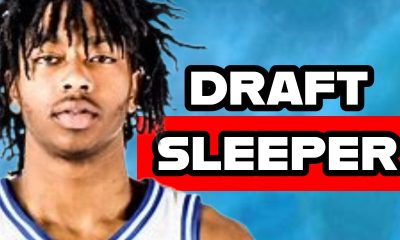
 College Sports3 weeks ago
College Sports3 weeks agoDuke basketball's Isaiah Evans on 2025 NBA Draft early entry list
-
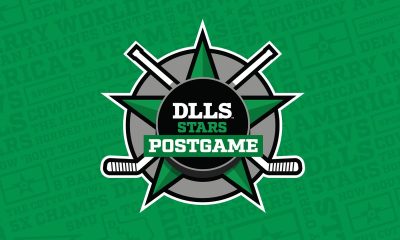
 Fashion2 weeks ago
Fashion2 weeks agoHow to watch Avalanche vs. Stars Game 7 FREE stream today
-

 High School Sports1 week ago
High School Sports1 week agoWeb exclusive
-
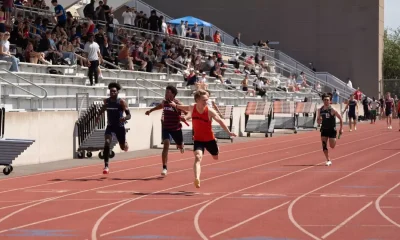
 Sports1 week ago
Sports1 week agoPrinceton University
-
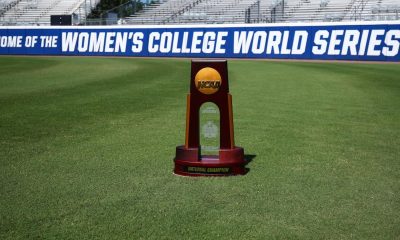
 Sports1 week ago
Sports1 week ago2025 NCAA softball bracket: Women’s College World Series scores, schedule
-

 Motorsports2 weeks ago
Motorsports2 weeks agoBowman Gray is the site of NASCAR’S “Advance Auto Parts Night at the Races” this Saturday
-
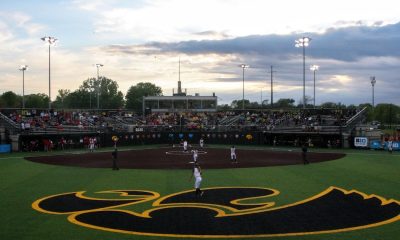
 NIL2 weeks ago
NIL2 weeks ago2025 Big Ten Softball Tournament Bracket: Updated matchups, scores, schedule
-
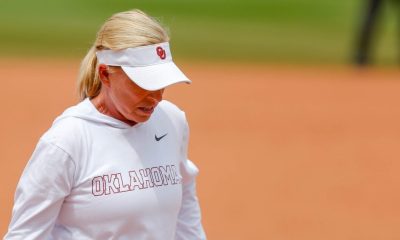
 NIL2 weeks ago
NIL2 weeks agoPatty Gasso confirms Sophia Bordi will not finish season with Oklahoma softball
-

 Motorsports2 weeks ago
Motorsports2 weeks agoMOTORSPORTS: Three local track set to open this week | Sports
-

 Motorsports2 weeks ago
Motorsports2 weeks ago$1.5 Billion Legal Powerhouse Announces Multi-Year NASCAR Deal With Kyle Busch



















